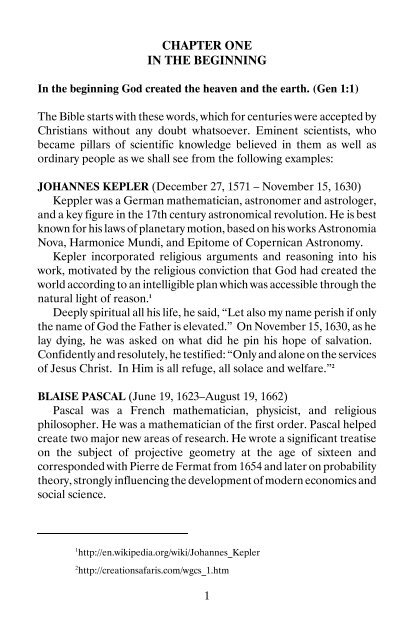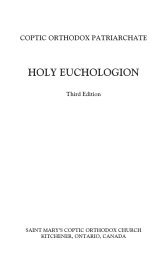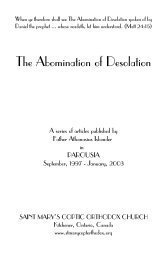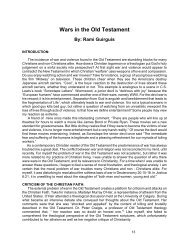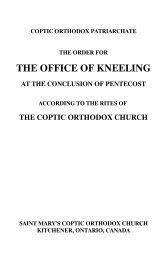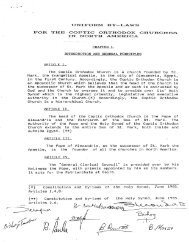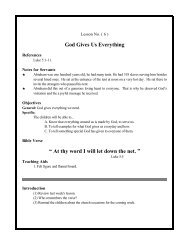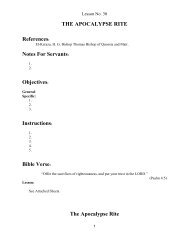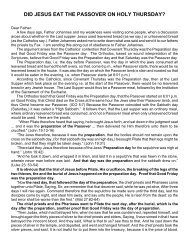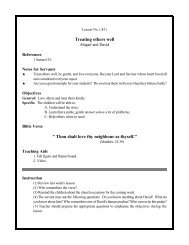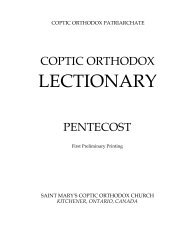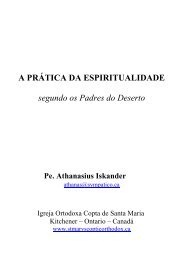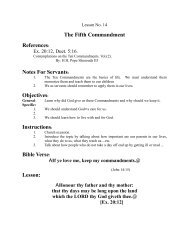Creation - St. Marys Coptic Orthodox Church
Creation - St. Marys Coptic Orthodox Church
Creation - St. Marys Coptic Orthodox Church
You also want an ePaper? Increase the reach of your titles
YUMPU automatically turns print PDFs into web optimized ePapers that Google loves.
CHAPTER ONE<br />
IN THE BEGINNING<br />
In the beginning God created the heaven and the earth. (Gen 1:1)<br />
The Bible starts with these words, which for centuries were accepted by<br />
Christians without any doubt whatsoever. Eminent scientists, who<br />
became pillars of scientific knowledge believed in them as well as<br />
ordinary people as we shall see from the following examples:<br />
JOHANNES KEPLER (December 27, 1571 – November 15, 1630)<br />
Keppler was a German mathematician, astronomer and astrologer,<br />
and a key figure in the 17th century astronomical revolution. He is best<br />
known for his laws of planetary motion, based on his works Astronomia<br />
Nova, Harmonice Mundi, and Epitome of Copernican Astronomy.<br />
Kepler incorporated religious arguments and reasoning into his<br />
work, motivated by the religious conviction that God had created the<br />
world according to an intelligible plan which was accessible through the<br />
natural light of reason. 1<br />
Deeply spiritual all his life, he said, “Let also my name perish if only<br />
the name of God the Father is elevated.” On November 15, 1630, as he<br />
lay dying, he was asked on what did he pin his hope of salvation.<br />
Confidently and resolutely, he testified: “Only and alone on the services<br />
of Jesus Christ. In Him is all refuge, all solace and welfare.” 2<br />
BLAISE PASCAL (June 19, 1623–August 19, 1662)<br />
Pascal was a French mathematician, physicist, and religious<br />
philosopher. He was a mathematician of the first order. Pascal helped<br />
create two major new areas of research. He wrote a significant treatise<br />
on the subject of projective geometry at the age of sixteen and<br />
corresponded with Pierre de Fermat from 1654 and later on probability<br />
theory, strongly influencing the development of modern economics and<br />
social science.<br />
1 http://en.wikipedia.org/wiki/Johannes_Kepler<br />
2 http://creationsafaris.com/wgcs_1.htm<br />
1


